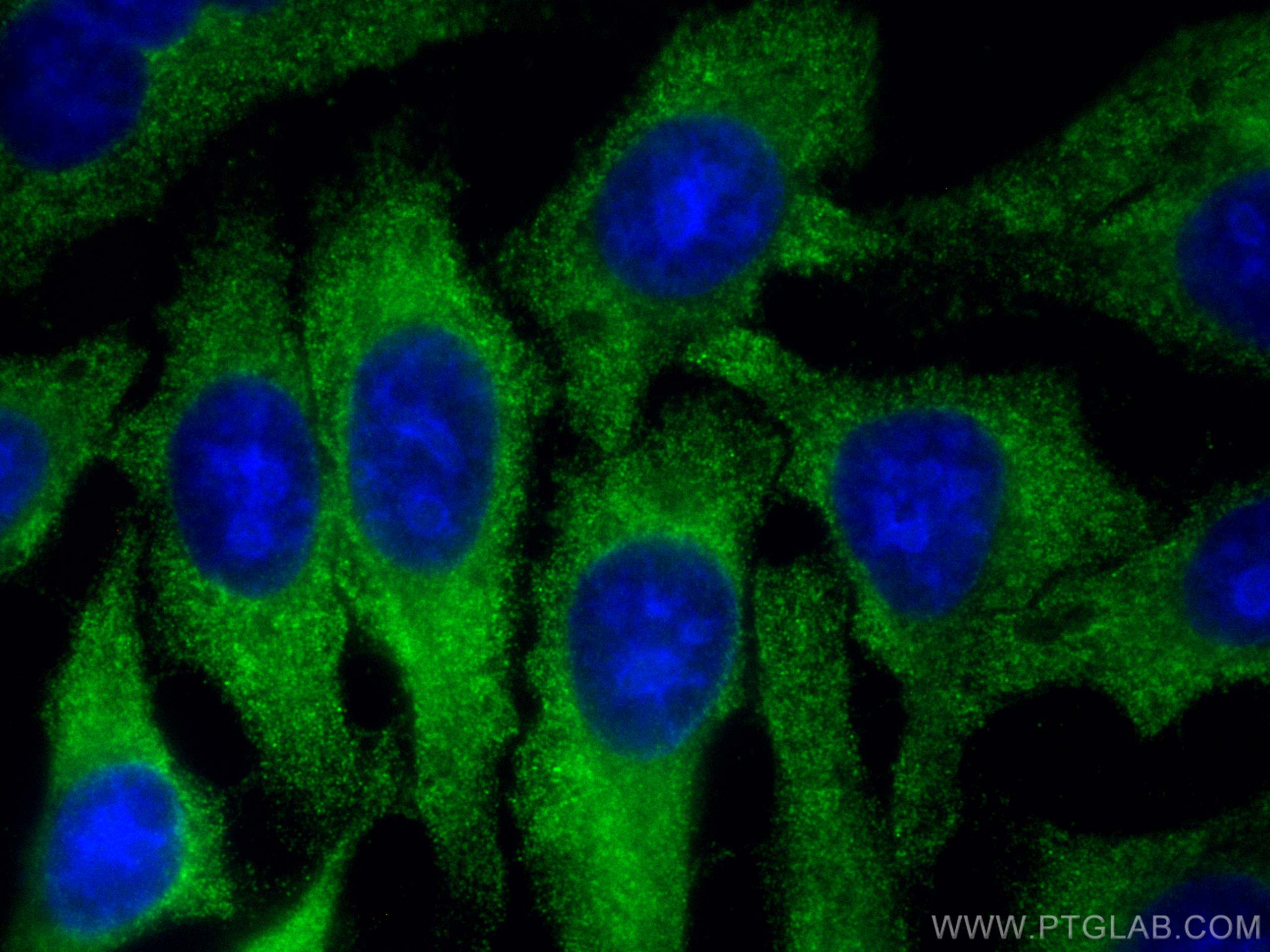Tested Applications
| Positive IF/ICC detected in | HepG2 cells |
Recommended dilution
| Application | Dilution |
|---|---|
| Immunofluorescence (IF)/ICC | IF/ICC : 1:300-1:1200 |
| It is recommended that this reagent should be titrated in each testing system to obtain optimal results. | |
| Sample-dependent, Check data in validation data gallery. | |
Product Information
CL488-66677 targets AKR7A2 in IF/ICC applications and shows reactivity with human samples.
| Tested Reactivity | human |
| Host / Isotype | Mouse / IgG1 |
| Class | Monoclonal |
| Type | Antibody |
| Immunogen |
CatNo: Ag26105 Product name: Recombinant human AKR7A2 protein Source: e coli.-derived, PET28a Tag: 6*His Domain: 60-359 aa of BC007352 Sequence: RAFLERGHTELDTAFMYSDGQSETILGGLGLGLGGGDCRVKIATKANPWDGKSLKPDSVRSQLETSLKRLQCPQVDLFYLHAPDHGTPVEETLHACQRLHQEGKFVELGLSNYASWEVAEICTLCKSNGWILPTVYQGMYNATTRQVETELFPCLRHFGLRFYAYNPLAGGLLTGKYKYEDKDGKQPVGRFFGNSWAETYRNRFWKEHHFEAIALVEKALQAAYGASAPSVTSAALRWMYHHSQLQGAHGDAVILGMSSLEQLEQNLAATEEGPLEPAVVDAFNQAWHLVAHECPNYFR Predict reactive species |
| Full Name | aldo-keto reductase family 7, member A2 (aflatoxin aldehyde reductase) |
| Calculated Molecular Weight | 40 kDa |
| Observed Molecular Weight | 35-40 kDa |
| GenBank Accession Number | BC007352 |
| Gene Symbol | AKR7A2 |
| Gene ID (NCBI) | 8574 |
| RRID | AB_2919355 |
| Conjugate | CoraLite® Plus 488 Fluorescent Dye |
| Excitation/Emission Maxima Wavelengths | 493 nm / 522 nm |
| Form | Liquid |
| Purification Method | Protein G purification |
| UNIPROT ID | O43488 |
| Storage Buffer | PBS with 50% glycerol, 0.05% Proclin300, 0.5% BSA, pH 7.3. |
| Storage Conditions | Store at -20°C. Avoid exposure to light. Stable for one year after shipment. Aliquoting is unnecessary for -20oC storage. |
Background Information
AKR7A2(Aflatoxin B1 aldehyde reductase member 2) is also named as AFAR, AFAR1, AKR7 and belongs to the aldo/keto reductase family. AKR7A2 enzyme is catalytically active toward aldehydes arising from lipid peroxidation, suggesting a potential role against the consequences of oxidative stress, and representing an important detoxication route in mammalian cells(PMID:22001351).
Protocols
| Product Specific Protocols | |
|---|---|
| IF protocol for CL Plus 488 AKR7A2 antibody CL488-66677 | Download protocol |
| Standard Protocols | |
|---|---|
| Click here to view our Standard Protocols |




